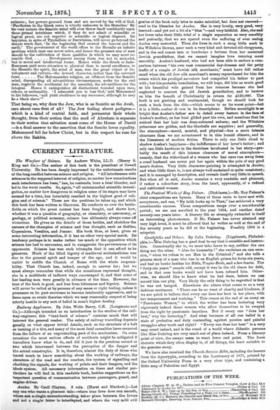Gentlefolks and Others. By Julia Dahring. (Lippincott, Philadel- phia.)—Miss Duhring
has a geed deal to say that is sensible and instruc- tive. Occasionally she is, we must take leave to say, neither the one thing nor the other. " Alas for humanity !" she exclaims on one occa- sion, " when we refuse to see Man in the Criminal ;" and she tells a piteous story of a man who was in an English prison for forty-six years, and had no books besides his Bible, Prayer-Book, and a few tracts. The " forty-six years " sounds odd, except it was in the old times for debt, and in that case books would not have been refused him. Other- wise, we should like to know what he had done, before we can accord him our pity. Very likely the only thing to be regretted is that he was not hanged. Elsewhere she utters what seems to us a very dubious sentiment. " There can be no want of charity and kindness, if we are quick to believe that every one does her best in her place, with her temperament and training." This comes at the end of an essay on "Passionate Women," in which the writer has been lecturing very vigorously indeed those women who allow themselves to bo swayed from the right by passionate impulses. But if every one "does her best," why the lecturing ? And what becomes of all our belief in a state of probation and duty contending against passion and painful struggles after truth and right? "Every one does her best" is a very easy creed indeed, and is the creed of a world where didactic persons like Miss Duhring are very much out of place indeed. From a literary point of view, the essays seem to want force and point. The loose rhetoric which they often display is, of all things, the least suitable to the genuine essay.
































 Previous page
Previous page